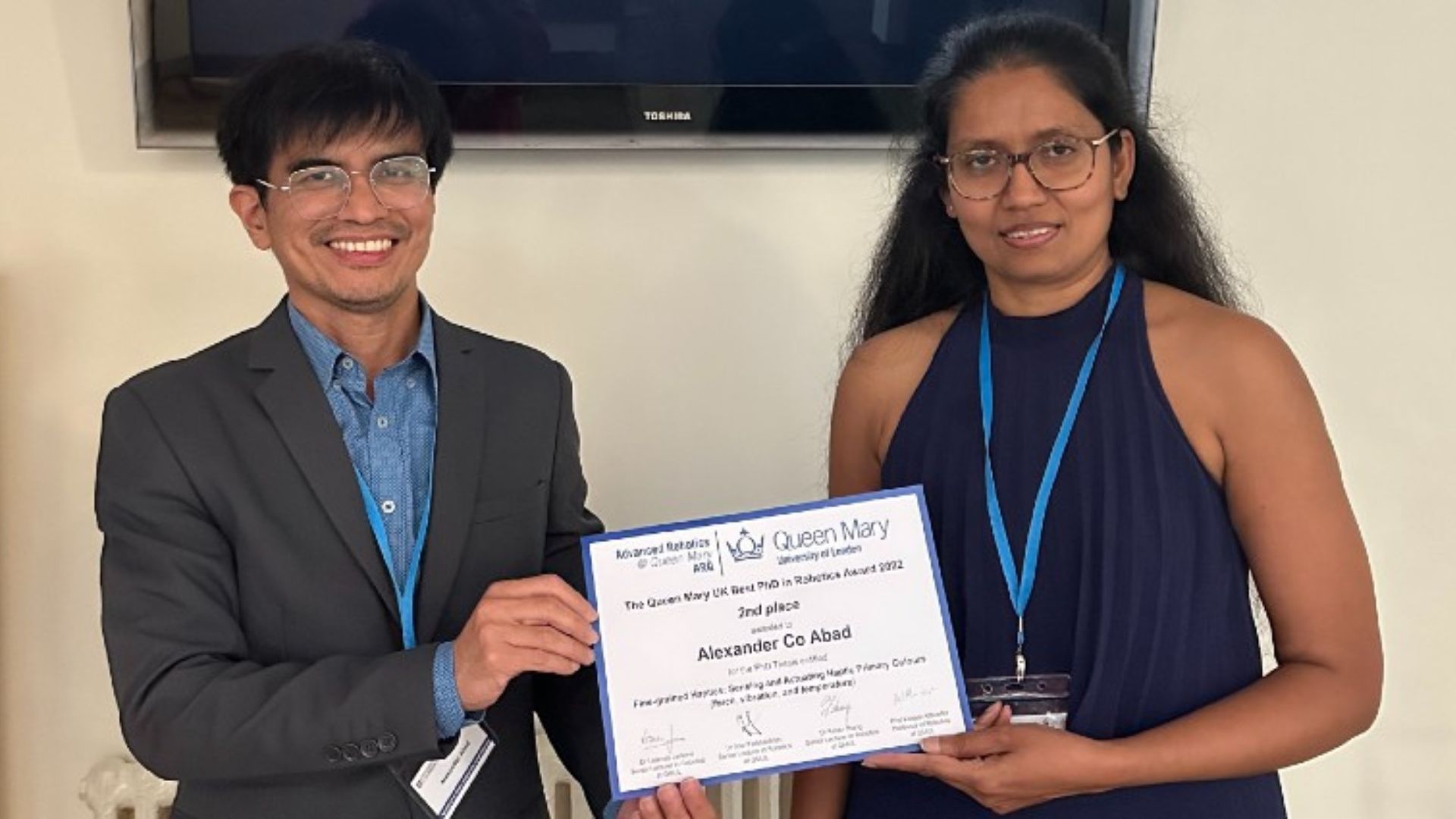Electronics and Computer Engineering Assistant Professor of De La Salle University and Liverpool Hope Ph.D. Graduate, Dr. Alexander Co Abad, won second place in the Queen Mary Best Ph.D. in Robotics, showing excellence of Filipinos to inventions.
On September 14, he presented his research entitled “Fine-grained Haptics: Sensing and Actuating Haptic Primary Colors (force, vibration, and temperature)” at the 2023 TAROS Conference, along with his sensor invention known as “The HampiTemp Sensor.”
He explains in a local news interview that the sensor was able to measure force, vibration, and temperature and to detect tactile objects.
“The human skin can recognize hot or cold temperatures, rough or smooth surfaces, moving objects, and detect the amount of force exerted. Yung sensor ko lahat yun magagawa niya. It’s the closest thing to human skin,” he said.
The HampiTemp sprouted from replicating “GelSight,” a 2009 invention of Massachusetts Institute of Technology scientists used for measuring high-resolution surface topography.
Abad compared GelSight to holding a peso coin: “Ang unang application ng sensor na ito ay sa metrology, pangsukat ng mga texture, kunwari sa piso, pwede mong sukatin ang embossed image ni Rizal. Pwede mong masukat ang thickness ng hair strand.”
His low-cost alternative replication of the GelSight was composed of 1£ clear silicone cosmetic sponge; its colored layer was removed, the other side painted, and a camera placed under.
Wanting to combine his two iterations, one with markers and one without, he recalled the UV light used by the cashier to check his 50£ bill during one of his purchases.
“Ang ginawa ko, gamit ang murang UV pen, nilagyan ko ng markings ang clear silicone at ginamitan ko ng UV light ang sensor ko. That way, pwede ko na ma-switch on and off ang UV markers,” he said.
Abad developed it once again by adding the feature of measuring force and vibration. It was then able to sense the pulse rate of a person.
The last feature he added was to measure temperature. Inspired by a Php 55 color-changing mug, he found thermochromic ink, mixed it with paint, and shaded one side of his invention.
In another interview with an international news outlet, he explains how the HampiTemp sensor further developed the capabilities of his robot arm.
“When attached to a robot’s finger, it is able to sense your pulse. And it can even differentiate between rough and smooth surfaces; the overall concept is to enable a robot to feel and sense like a human would, which gives it many advantages for medical work,” Abad said.
Abad’s dream is for the fields of biomedicine, teleoperation, and endoscopy to benefit from these sensors, providing a more accurate and effective procedure for future benefit.
Photo Credit:
https://www.hope.ac.uk/
https://www.hope.ac.uk/








